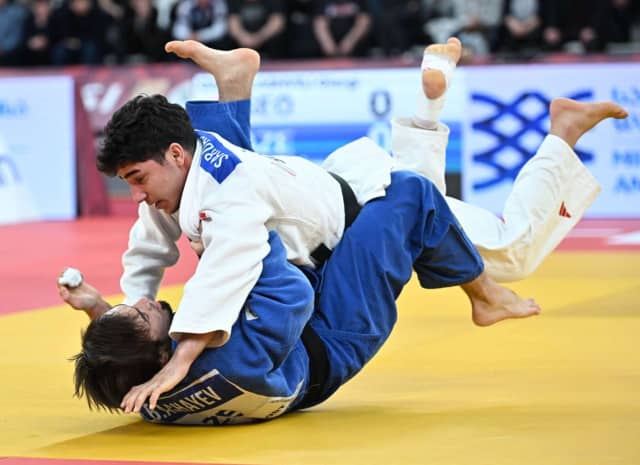To the whole range of judo techniques, both in tachi-waza and ne-waza, is added a host of other possibilities to win, including penalties. They are in no way an end in themselves, because the ultimate goal is and must always remain to throw, hold down, apply a shime-waza or a kansetsu-waza. There is a reason for this: when you step on the tatami, philosophically and symbolically speaking, you put your life on the line. There is no risk in doing this of course. It is a question here of symbolism and the search for excellence. In this research precisely, the ippon is the right and perfect movement, the one which in a second can stop everything or restart everything; it is exactly that moment when life hangs by a thread. Everything is possible.
To allow the full and complete expression of each person, judo, as a sport, has not spared the effort of establishing a framework which represents what is permitted or not to guarantee your opponents in competition (your partners in training) to express themselves completely. It is exactly because you give others the tools to beat you and they do the same for you that judo is more than just a grappling activity.
Judo is a school of life which allows the development of individuals as members of a fairer society. For this to be possible, rules are necessary. Within these rules, anything can happen and freedom is total. You can go left or right, you can pull and push, you can basically do anything, but within the rules. It is therefore not possible to practise judo, especially at a high level, without excellent knowledge of the rules, just as it is not possible to drive safely without knowing the highway code and its application. We cannot say, “Mr Police Officer, I didn’t know!” In judo, it is the same. All competitors must know the rules. They need to know what the penalties are, how they are given and the risks of being penalised. They can be no surprise. Athletes must also, if necessary, know how to use penalties to win a contest that is bogged down, in which throwing seems impossible. It's part of the game.
We can sometimes say that tactics play too big a role. First of all, in essence, it is part of the sport but above all it remains an essential tool in the toolbox of all champions. Finding the opportunity to score ippon or waza-ari is not always possible, so having the opportunity to win in another way is important. However, any judoka will tell you that between a thousand penalties and an ippon, their choice will always turn to the ippon. It is beautiful, it is powerful, it is liberating. It is a summary of life that is evoked.
So, whether you are a judoka in the making, an already accomplished champion or simply a judo enthusiast, know and learn the rules, respect the refereeing decisions and above all, above all, when you step on the tatami, look for the ippon. It is the only thing that is always worth a try. Without good knowledge of the rules, nothing is possible and especially not the freedom to express yourself.



